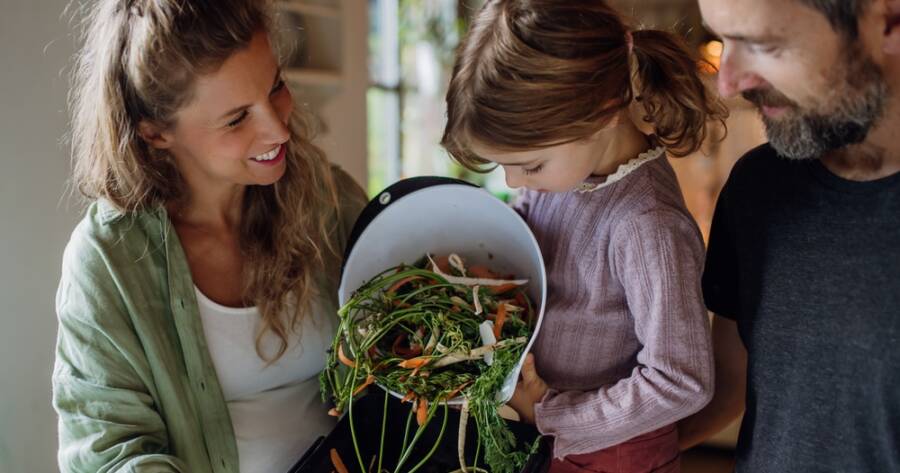What if your kitchen scraps could help your garden thrive instead of ending up in the trash? Composting is a simple, eco-friendly way to transform everyday waste (like vegetable peels, coffee grounds, and eggshells) into nutrient-rich soil. It reduces landfill waste while giving your plants a powerful natural boost. Whether you’re a seasoned gardener or a complete beginner, learning how to compost turns your leftovers into “garden gold” and supports a healthier, greener environment.
What You Can and Can’t Compost
A successful compost pile starts with knowing what materials to include. Common kitchen scraps like fruit and vegetable peels, coffee grounds, eggshells, and tea bags are all excellent compost ingredients. You can also add yard waste such as grass clippings, leaves, and small plant trimmings.
However, avoid composting meat, dairy, oils, or cooked foods, as these can attract pests and cause unpleasant odors. Similarly, steer clear of glossy paper, synthetic materials, and diseased plants to keep your compost pile healthy and efficient.
Balancing Greens and Browns
The key to rich, healthy compost lies in balancing “green” and “brown” materials. Green materials include moist, nitrogen-rich items like vegetable scraps, grass clippings, and coffee grounds. Brown materials—such as dry leaves, cardboard, and paper—provide carbon and help regulate airflow.
Aim for roughly a 3-4:1 ratio of browns to greens. Too many greens can make the pile wet and smelly, while too many browns slow decomposition. Regularly mixing the pile ensures both elements break down evenly.
Choosing the Right Composting Method
Composting can be done in several ways, depending on your space and needs. Outdoor compost bins or piles are ideal for larger yards and gardens, offering ample space for turning and aerating. Tumblers are another popular option—they keep the pile contained and make turning easier.
For those without outdoor space, vermicomposting (composting with worms) is perfect for apartments. Worm bins fit under sinks or in closets, and the worms efficiently break down kitchen scraps into rich compost.
Turning and Aerating Your Compost
Oxygen is crucial for decomposition, helping beneficial microbes break down materials efficiently. Turning your compost pile every week or two aerates it, keeping it well-oxygenated and preventing unpleasant odors. A garden fork, compost aerator, or tumbler crank makes the task easy.
If you notice your compost pile smelling sour or becoming soggy, that’s often a sign it needs more air and brown materials. Regularly turning and monitoring moisture levels ensures a faster, healthier composting process.
Knowing When Your Compost Is Ready
Finished compost is dark, crumbly, and has an earthy smell—completely transformed from its original ingredients. Depending on conditions, it typically takes two to six months to fully decompose. You should no longer recognize the kitchen scraps or yard waste you added.
Once ready, spread the compost in your garden beds, mix it into potting soil, or use it as mulch around plants. It’s nature’s best fertilizer, packed with nutrients that promote healthy, vibrant growth.
Troubleshooting Common Composting Problems
Even experienced composters run into occasional issues. A foul odor usually signals too much moisture or an imbalance of greens and browns—try adding more dry leaves or cardboard. If your compost isn’t breaking down quickly, it may need more greens or turning more frequently.
Pests can sometimes be a problem if meat, dairy, or oily foods sneak into the pile. Always stick to plant-based scraps and keep your pile covered to deter unwanted visitors.
Turning Scraps into Sustainable Success
Composting is one of the easiest ways to reduce waste and nurture your garden at the same time. With the right balance of materials, consistent care, and a little patience, your kitchen scraps transform into nutrient-rich compost that your plants will love. Whether you have a big backyard or a small apartment, there’s a composting method that can work for you—bringing you one step closer to a greener, more sustainable lifestyle.

